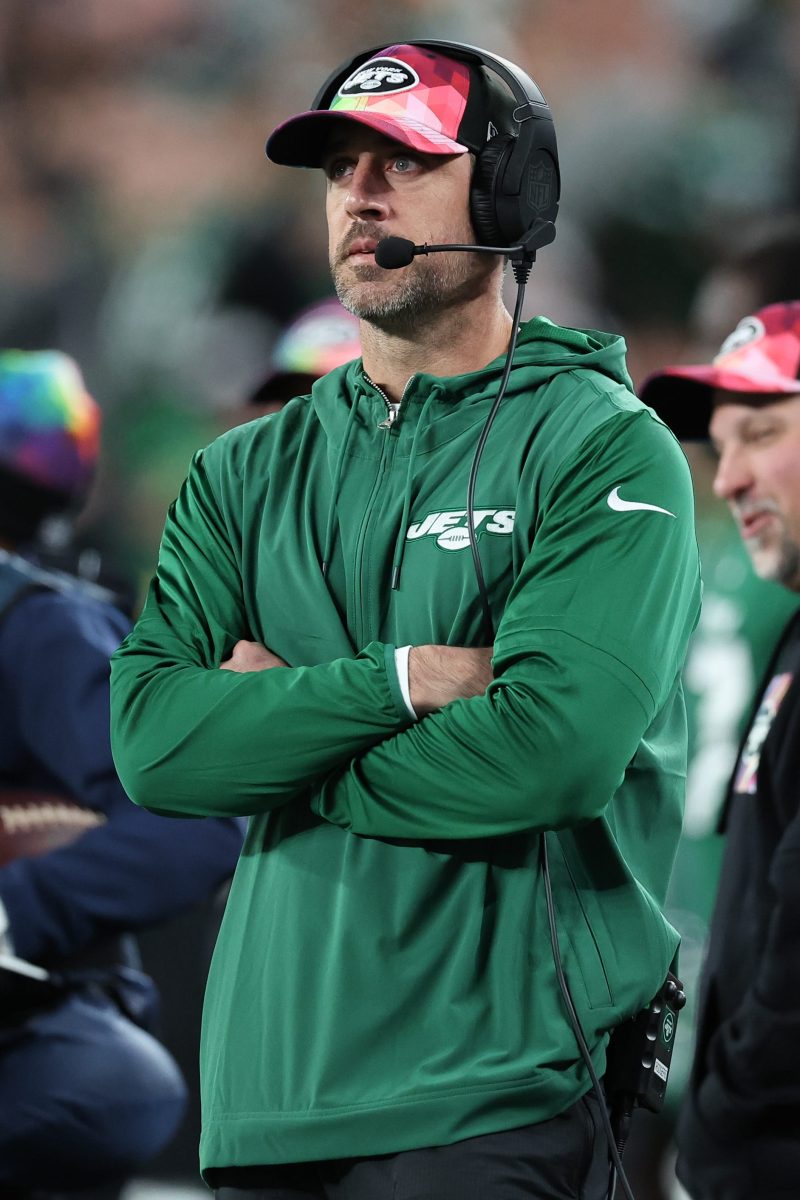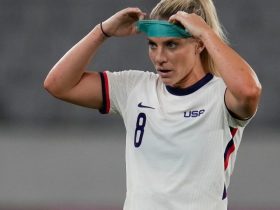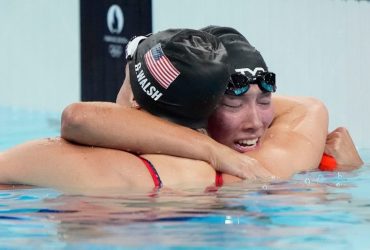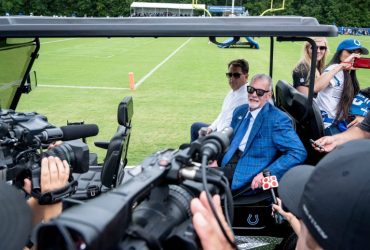Karan Patel, an orthopedic surgeon for the Mayo Clinic, said he arrived for a gathering of colleagues last month armed with something out of the norm: video of Aaron Rodgers throwing a football less than five weeks after the New York Jets star quarterback had surgery for a ruptured Achilles tendon.
Patel said he also brought data about recovery expectations from such surgery, compared to the accelerated rate of Rodgers’ recovery that Patel called “unprecedented.”
“How did this guy get here?’’ Patel said of Rodgers during an interview with USA TODAY Sports.
Elite athletes generally require six to nine months of rehabilitation before they’re ready to return to play after this type of surgery, according to Patel and medical research. Rodgers, injured four plays into the season, has said he hopes to resume practicing around Dec. 2, his 40th birthday and less than three months after surgery.
Chris Mendias, a researcher in the field of sports medicine, called it ‘wild.”
NFL STATS CENTRAL: The latest NFL scores, schedules, odds, stats and more.
‘Not miraculous exactly,” he added by text message, ‘but also not far from it.”
Neal ElAttrache, the orthopedic surgeon who operated on Rodgers, did not return requests for comment from USA TODAY Sports. But a half-dozen experts provided insight into the pace, risks and possible methods of Rodgers’ rehabilitation.
Embracing the mental side of recovery
Physical therapist. Strength trainer. Nutritionist.
They’re all part of personal medical teams sometimes assembled by highly paid athletes, according to medical experts, and Patel mused that Rodgers might also employ a spiritual guide.
After all, this is the quarterback who has talked about the benefits of meditation and yoga retreats and in February went on a “darkness retreat” to help determine his NFL future. (Two months after re-emerging into the light, he opted to leave the Green Bay Packers for the Jets.)
Rodgers also has talked about the “mental process’’ in his use of psychedelics.
“I can tell you that athletes’ mental health is very important during their recovery,’’ said James Voos, head team physician for the Cleveland Browns.
Said Patel, “The mental space that you are in before surgery will have great affect on your results after surgery. How you feel like you are doing is almost as important as how you are actually doing.’’
Rodgers has exuded confidence about his comeback since his surgery Sept. 13.
Advanced methods accelerate recovery
Rodgers said he has done extensive research on recovery. Mendias, the researcher and musculoskeletal clinician scientist, talked about what can be found on the margins.
Common but still advanced methods, according to Mendias, are platelet-rich plasma injections and stem cell therapy.
There also is cutting-edge equipment cited by Voos, the Browns’ team physician, including AlterG, an anti-gravity treadmill; wearable technology to assess performance; and blood flow restriction therapy designed to increase strength gains in areas of the body atrophied after surgery.
Then there’s the ”speedbridge’’ procedure, designed to accelerate the healing process with an internal brace, used by Rodgers’ surgeon.
“Overall and particularly at the professional sports level,’’ Voos said, “we’re becoming much more adept at rehabilitating patients faster than ever.’’
Aaron Rodgers faces risks
The faster one returns from an injury, the greater the chance for reinjury or suffering a related injury, said Mary Lloyd Ireland, an orthopedic surgeon at the University of Kentucky.
Therein lies the risk for Rodgers as he attempts to speed back onto the field of play, suggested Ireland, who pointed to Miami Dolphins quarterback Tua Tagovailoa as evidence.
In 2019, when Tagovailoa still was playing college football at Alabama, he suffered an ankle sprain that can require up to eight weeks for full recovery. He returned to play three weeks later and during that first game back suffered a hip injury.
“So that’s my concern,’’ said Ireland, who this year was inducted into the American Orthopaedic Society for Sports Medicine Hall of Fame. “Do you hurt something else because you’re protecting that injured part and you’re not ready?’’
But it may be a calculated risk as Rodgers weighs the prospect of playing at less than 100 percent vs. his desire to get back on the field as fast as possible.
Even a quarter-step slower, said former Los Angeles Chargers team physician David Chao, Rodgers is “still faster than Tom Brady at 45.’’
And faster than Peyton Manning in his prime, Chao added.
Skepticism persists as Aaron Rodgers rehabs
When Patel’s meeting with colleagues adjourned, he said, there was a healthy amount of skepticism about whether Rodgers can continue this fast pace of recovery.
John Cronin, Chief Science Officer at Athlete Training and Health facility in Katy, Texas, addressed some of those doubts. Even if Rodgers is cleared for practice, Cronin wrote by email, “there are quite a few steps prior to him running on the field to compete.’’
That includes “building fatigue resistance into the repairing tissues and muscles that have deconditioned during the rehab,’’ Cronin wrote, adding that he would recommend being cautiously optimistic.
Patel said he’s eager to see what happens around Dec. 2 – if Rodgers actually resumes practice, how he will perform at 40 and the ongoing rehabilitation.
“I think we’re all skeptical,’’ Patel said, “but it’ll be fascinating to see how it all plays out.’’





